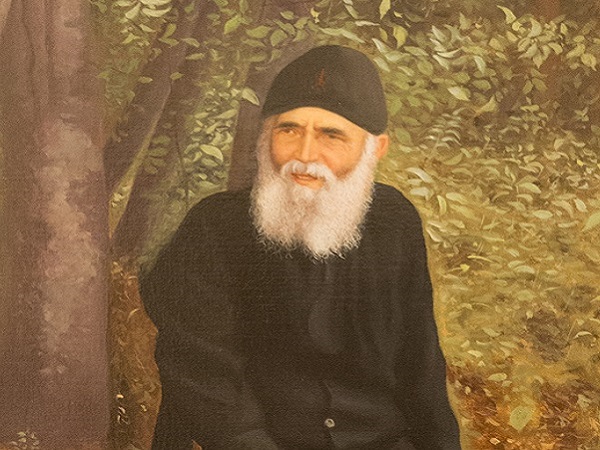God uses everything for the good
12 July 2023We sometimes start performing a task and are faced with a whole host of impediments. How are we to know whether these obstacles are from God?
First, let’s see if perhaps we’re at fault. If we’re not, then the obstacle’s from God, for our good. This is why we shouldn’t be concerned if the job’s not done or is late in coming to fruition.
One time, I was hurrying down to Konitsa from the Monastery of Stomio on an urgent errand. At a difficult point in the road- it was called Golgotha- I met a friend of the monastery, old Anastasis, with three heavily-laden donkeys*. Because of the steep incline, their saddles had slipped and one of the donkeys was close to the overhang and in danger of falling over the edge. ‘You’re a Godsend, Father’, old Anastasis said. I helped him unload and reload them, we got them back on the road and I left. I went on some way further and came to a place where there’d been a landslide over a three hundred meter stretch and it had taken out the road. Trees and rocks had plummeted into the river. If I hadn’t delayed, I’d have been there just at the time of the landslide. ‘Old Anastasis’, I said to myself, ‘you saved me. You’re a Godsend’.

Christ sees each of us from on high, how we act, and he knows when to act for our good. He knows how and where to lead us, so long as we ask for help, tell him what we want and leave it to him to arrange everything.
When I was at the Monastery of Filotheou, I wanted to go out into the wilderness; I thought about going to a deserted island. I’d actually agreed with a boat-owner to come and fetch me, but in the end, he didn’t come. It was God’s providence, because I was still inexperienced and would probably have done myself a lot of harm on a deserted island. The demons would have made a meal of me. Since I couldn’t go there, I turned to Katounakia. I loved the wilderness there and prayed and prepared to go there. I wanted to live the ascetic life with Elder Petros, a very spiritual monk.
But something happened and I had to go to Konitsa [the small town where he’d lived as a child] instead of Katounakia. One evening, after compline, I withdrew to my cell and prayed until late. At about eleven o’clock, I lay down to rest for a while. At half-past one I was woken up by the simandro of the monastery, calling us to go to church. I made to get up, but it was impossible. An invisible force held me fast. I was fixed firmly to the bed until twelve o’clock noon. I could pray and think, but was completely unable to move.
While I was in this state, I saw, as if it were on television, Katounakia on one side and the Monastery of Stomio in Konitsa on the other. I was looking longingly at Katounakia. Then came a voice- it was our Lady’s- saying clearly: ‘You’re not to go to Katounakia; you’re to go to the Monastery of Stomio’. I said: ‘My Lady, I asked you for the wilderness and you’re sending me out into the world?’. Then I heard the same voice saying to me severely: ‘You’ll go and meet this person, who’ll help you a great deal’. I was immediately set free from the invisible bonds and my heart was filled with divine grace.
Then I went and spoke to my confessor. ‘This is God’s will’, he told me. ‘But don’t tell anybody about what happened. Just say that, for health reasons’- I was bleeding at that time- ‘you have to leave the Mountain and go’. I wanted one thing, but God had his plan. I realized that it was God’s plan that I should renovate the monastery and, in this way I’d fulfil a vow I made to our Lady when I was serving in the army during the war. I’d said then: ‘Most holy Lady, help me become a monk and I’ll work for three years to rebuild your burnt monastery’. As it turned out, however, the main reason our Lady sent me there was to help eighty families who’d become Protestants to return to Orthodoxy.
God often allows something to happen that’s in the best interests of lots of people. He never does only one good thing, but three or four good things at the same time. Nor does he ever permit anything bad to happen unless lots of good things will emerge. He utilizes everything for our benefit, including what’s skewed and dangerous. Good and evil are mixed up together; it would be better if they were separate, but individual interests become involved and they get mixed up. But God makes good use even of this confusion. This is why we should believe that God allows only what will turn out well, because he loves us. He may, for example, allow a small temptation in order to protect us from a greater one.






